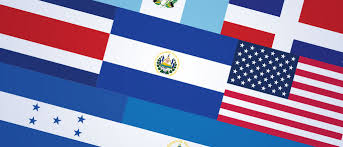U.S.– CAFTA-DR Free Trade Agreement
The Dominican Republic-Central America FTA (CAFTA-DR) is the first free trade agreement between the United States and a group of smaller developing economies: our Central American neighbors Costa Rica, El Salvador, Guatemala, Honduras, Nicaragua, as well as the Dominican Republic. The CAFTADR promotes stronger trade and investment ties, prosperity, and stability throughout the region and along our Southern border.
Under the Agreement, the Parties are significantly liberalizing trade in goods and services. CAFTA-DR also includes important disciplines relating to: customs administration and trade facilitation, technical barriers to trade, government procurement, investment, telecommunications, e-commerce, intellectual property rights, transparency, and labor and environmental protection. CAFTA-DR creates new commercial opportunities for the United States while promoting regional stability, economic integration, and economic development for an important group of U.S. neighbors.
Rules of Origin
For goods that are not wholly obtained, you must meet the product’s rule of origin, usually through Tariff Shift or Regional Value Content. Learn more about how to Read and Apply FTA Rules of Origin. The rules of origin may be found in the final text of the FTA. Occasionally, a particular rule of origin may be revised. For the most updated version of the ROOs consult the Harmonized Tariff Schedule of the United States, General Notes — General Note 29.
In addition to the above rules of origin, there may be other ways to qualify your product:
- Accumulation may allow the producer to reduce the value of the non-originating materials used in the production of the good.
- De Minimis allows the exporter to disregard a very small percentage of non-originating materials the do no meet a tariff shift rule.
- Direct Shipment are goods which must be shipped directly from one FTA party to another FTA party.
- Fungible Goods and Materials refers to goods or materials (components) that are interchangeable for commercial purposes and whose properties are essentially identical.
- Indirect Materials are goods used in the production, testing or inspection of a good but not physically incorporated into the good
Claiming/Documenting Origin
No specific certificate is required for the U.S. – CAFTA FTA but your importer may request a specific format. More information on what to include can be found in Free Trade Agreements Certificates of Origin.
Key Links/Resources
- USTR CAFTA-DR (includes Final Text of the Agreement)
- USDA Overview
- Textiles Overview
- CBP Side-by-Side Comparison of FTAs
- U.S. Commercial Service Costa Rica
- U.S. Commercial Service Dominican Republic
- U.S. Commercial Service El Salvador
- U.S. Commercial Service Guatemala
- U.S. Commercial Service Honduras
- U.S. Commercial Service Nicaragua
- FTA Tariff Tool
- FTA Help Center
